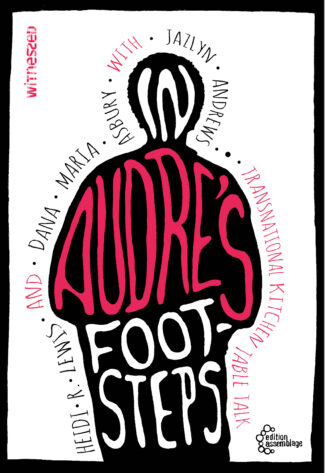English
Paperback, 128 pages
140 x 205mm
978-3-96042-111-5 / 2-973
12,80 Euro
Publication date: 05.11.2021
English
Paperback, 128 pages
140 x 205mm
978-3-96042-111-5 / 2-973
12,80 Euro
Publication date: 05.11.2021
Content
In Audre’s Footsteps honors Black radical traditions set forth by W.E.B. Du Bois, Rev. Dr. Martin Luther King, Jr., Dr. Angela Y. Davis, and Audre Lorde, all who were intellectually influenced by their experiences in Berlin. The text primarily relies on Black and Transnational Feminist theoretical frameworks and methodologies to amplify the resistive and generative personal and professional experiences of women of color educators, artists, activists, and scholars in Berlin and the U.S. who consider themselves friends in the struggle. While being particularly attentive to racism, heterosexism, colonialism, and other forms of oppression, In Audre’s Footsteps also examines how these women resist, reject, and revise oppressive narratives as they develop their subjectivities. Further, it addresses the always advantageous but sometimes contentious contours of solidarity, especially when people actively engaging with various forms of resistance have seemingly competing and contradictory goals.
Authors & Series
Reading Sample / Cover
“Movement spaces are often romanticized and examined through rose-colored glasses, as spaces of common understanding and unity, but how can we connect across differences in space, time, and identity, particularly when we’re in conflict with each other?”



